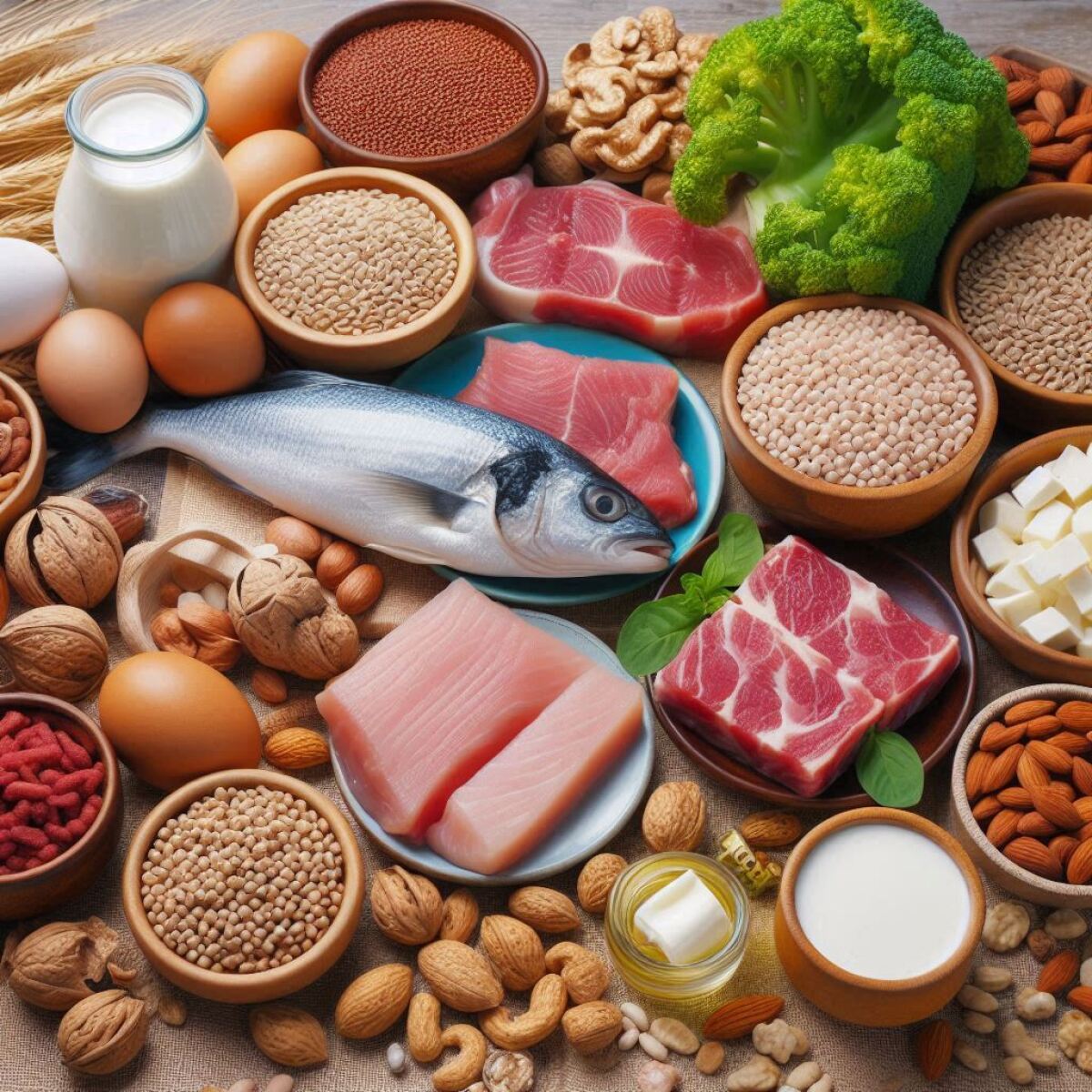Science discovers a link between bipolar disorder and diet
According to this scientific study, a particular diet helps improve the management of bipolar disorder. Find out in this article!...
Table of Contents
Follow Patricia Alegsa on Pinterest!
A recent study by the National Institutes of Health (NIH) in the United States has revealed that nutritional therapy can play a crucial role in reducing the incidence and severity of bipolar disorder.
Bipolar disorder is characterized by abnormal fluctuations in mood, energy, level of activity, and concentration capacity, significantly affecting the mental, physical, and social life of those who suffer from it.
Bipolar disorder can present episodes of deep depression and periods of mania, where the person may experience extreme euphoria, overflowing energy, and excessive activity.
These emotional ups and downs not only disrupt daily life but can also exacerbate other health problems, such as hypertension and cardiovascular diseases.
Several published scientific studies have found a link between improving bipolarity and diet.
The fundamental pillar: nutrition
The scientific study highlights the importance of the DASH diet, by its name in English "Dietary Approaches to Stop Hypertension", in the effective management of bipolar disorder.
Originally, this diet was designed to control or prevent hypertension; mood fluctuations may be related to changes in blood pressure, so following this eating plan can help stabilize both aspects.
Originally, this diet was designed to control or prevent hypertension; mood fluctuations may be related to changes in blood pressure, so following this eating plan can help stabilize both aspects.
The "DASH" diet suggests that we consume these foods:
- Whole grains
- Fish
- Eggs
- Lean meat
- Low-fat dairy products
- Soy products
- Nuts and seeds
- Fresh fruits and vegetables
These foods are rich in proteins and minerals, essential for maintaining overall health and preventing diseases.
Additionally, they are crucial for the well-being of individuals with bipolar disorder, as they provide the necessary nutrients for physical and mental balance.
Additionally, they are crucial for the well-being of individuals with bipolar disorder, as they provide the necessary nutrients for physical and mental balance.
In addition to following a proper diet, regular exercise is crucial to maintaining a healthy weight and improving overall health.
Physical activity can help regulate mood and provide a sense of well-being, which is essential for individuals with bipolar disorder.
I also suggest reading: How to control cholesterol with legumes
Foods to avoid
The scientific study also emphasizes the importance of abstaining from consuming sweets, salt, and alcohol.
These substances can exacerbate symptoms of bipolar disorder and contribute to the development of other health complications.
Likewise, it is crucial to avoid the typical Western diet, rich in red meat, trans and saturated fats, and simple carbohydrates.
These components are associated with a higher risk of obesity, type 2 diabetes, and cardiovascular diseases.
You may also want to read: Mediterranean diet for a longer life
Scientific sources of this article
You can check the scientific articles on which I based to write this health article.
"Nutrition and bipolar depression" - NIH
Nutritional therapy, particularly through the diet mentioned in this article, can be used to improve bipolar disorder.
Adopting a balanced dietary approach, combined with regular exercise, can help reduce the incidence and severity of this condition, significantly improving the quality of life of those who suffer from it.
If you suffer from bipolar disorder, I suggest consulting with your doctor about these strategies that will help improve your life.
I suggest you keep reading: How to fight Alzheimer's

Subscribe to the free weekly horoscope
Aquarius Aries Cancer Capricorn Gemini Leo Libra Pisces Sagittarius Scorpio Taurus Virgo
-
 Okinawa Diet: The Key to a Long and Healthy Life
Okinawa Diet: The Key to a Long and Healthy Life
Discover the Okinawa diet, known as the 'recipe for longevity.' With low-calorie foods and antioxidants, it promotes a long and healthy life. -
 The Daily Habit That Can Add 10 Years to Your Life After 40
The Daily Habit That Can Add 10 Years to Your Life After 40
Discover the daily habit that can add 10 years to your life: Exercise! Active individuals over 40 enjoy better health, according to a study. -
 Liquid gold: miracle supplement or just a myth in research?
Liquid gold: miracle supplement or just a myth in research?
Discover what 'liquid gold' is and the doubts it raises. Although it promises great benefits, research is in its early stages. Get informed here! -
 Ideal frequency for cleaning the home refrigerator
Ideal frequency for cleaning the home refrigerator
Discover how often to clean your refrigerator and tips to keep it spotless. Ensure the freshness of your food and prolong the life of your appliance. -
 Why is International Albinism Awareness Day celebrated?
Why is International Albinism Awareness Day celebrated?
Every June 13th is not just another day on the calendar. Since 2015, this day has become a beacon of hope, inclusion, and awareness for thousands of people around the world.
I am Patricia Alegsa
I have been writing horoscope and self-help articles professionally for over 20 years.
Subscribe to the free weekly horoscope
Receive weekly in your email the horoscope and our new articles on love, family, work, dreams and more news. We do NOT send spam.
Astral and numerological analysis
-
 Discover your future, secret personality traits and how to improve in love, business and life in general
Discover your future, secret personality traits and how to improve in love, business and life in general
-
 Online Dream Interpreter: with artificial intelligence
Do you want to know what a dream you had means? Discover the power of understanding your dreams with our advanced online dream interpreter using artificial intelligence that responds to you in seconds.
Online Dream Interpreter: with artificial intelligence
Do you want to know what a dream you had means? Discover the power of understanding your dreams with our advanced online dream interpreter using artificial intelligence that responds to you in seconds.
-
 Numerology: how to calculate your number according to your birth and its meaning
Numerology: how to calculate your number according to your birth and its meaning
Discover the power of your birth number in numerology. Learn how to calculate your 'life path' and uncover the secrets each number holds about your destiny. -
 Goodbye, Cramps! Uncover Their Secrets and How to Prevent Them
Goodbye, Cramps! Uncover Their Secrets and How to Prevent Them
Discover why cramps occur and how to prevent them! Learn to avoid these discomforts with tips from sports medicine experts. -
 COVID: 7 million deaths in 5 years
COVID: 7 million deaths in 5 years
Five years of COVID! WHO reveals 7 million deaths and 776 million cases. Keep your vaccines up to date! -
 Bill Gates revealed to us the small habits for success
Bill Gates revealed to us the small habits for success
Have you ever wondered what Bill Gates, the co-founder of Microsoft and one of the richest men on the planet, does to maintain his success? -
 Incredible stories from the deadliest natural disaster in history: 220,000 dead
Incredible stories from the deadliest natural disaster in history: 220,000 dead
On the morning of 12/26/2004, an earthquake in the Indian Ocean unleashed a brutal tsunami. A fishing boat got stranded on a roof, saving 59 people. An incredible story of survival! -
 Discover a group of chimpanzees with culture and tools like humans
Discover a group of chimpanzees with culture and tools like humans
Chimpanzees in Africa exhibit culture similar to humans: they use tools and adapt methods according to their environment, revealing cultural transmission. -
 Risks of Excessive Painkillers and Safe Alternatives
Risks of Excessive Painkillers and Safe Alternatives
Pain Day: Impact of Painkiller Abuse. Experts warn about high doses and propose safe alternatives to balance need and prudence. -
 Demystifying Sexuality: Penis Size and Social Pressures
Demystifying Sexuality: Penis Size and Social Pressures
Discover the myths about sexuality: penis size, social pressures, and pornography. Adrián Rosa, a sexologist from UBA, helps you to enjoy fully. -
 What does it mean to find an owl feather in your home?
What does it mean to find an owl feather in your home?
Discover the mystery of finding an owl feather in your home: a symbol of intuition and wisdom. Explore its meaning and other animals that attract good luck. -
 10 Expert Morning Habits Backed by Harvard Studies
10 Expert Morning Habits Backed by Harvard Studies
10 Expert Morning Habits to Boost Your Emotional Well-Being. Harvard studies suggest that a regular routine provides the brain with a sense of security and focus. -
 Discover the anti-inflammatory diet to improve your health
Discover the anti-inflammatory diet to improve your health
Discover the anti-inflammatory diet: recommended foods and those you should avoid to combat chronic inflammation and improve your health. Get informed now! -
 What does it mean to dream of mushrooms?
What does it mean to dream of mushrooms?
Discover the meaning of your dreams with mushrooms - is it a sign of a change in your life? Find out in our article! -
 What does it mean to dream of hay?
What does it mean to dream of hay?
Discover the hidden meaning in your dreams with hay, does it represent prosperity or danger? Find the answer in this article and wake up with more clarity.